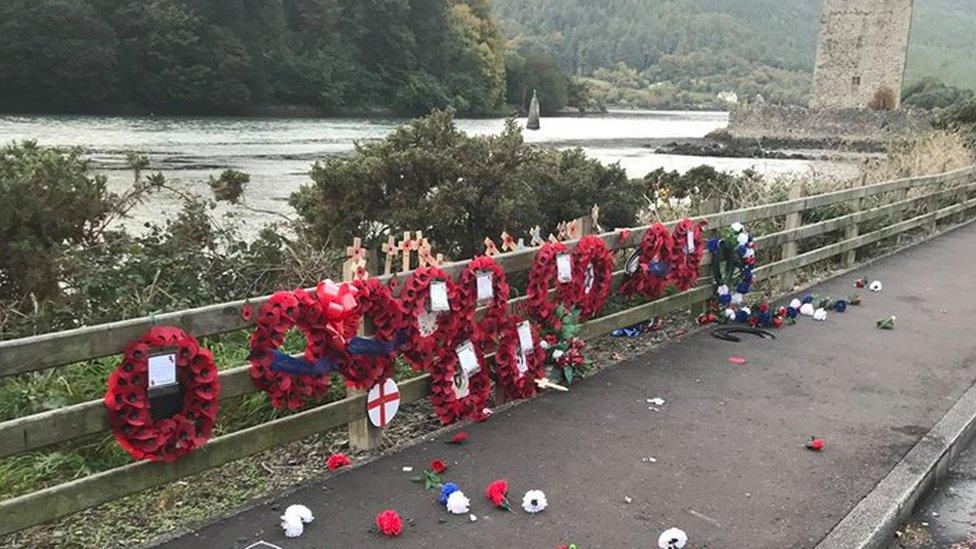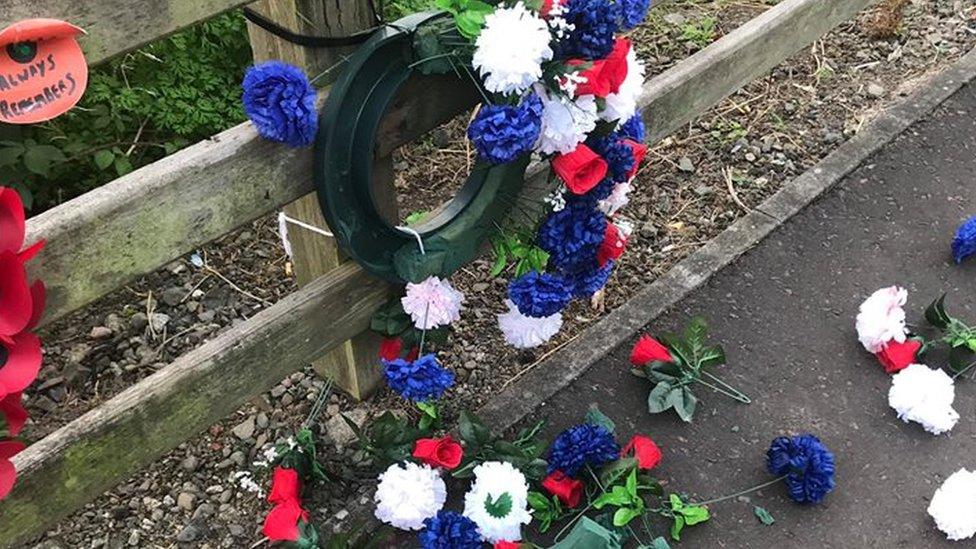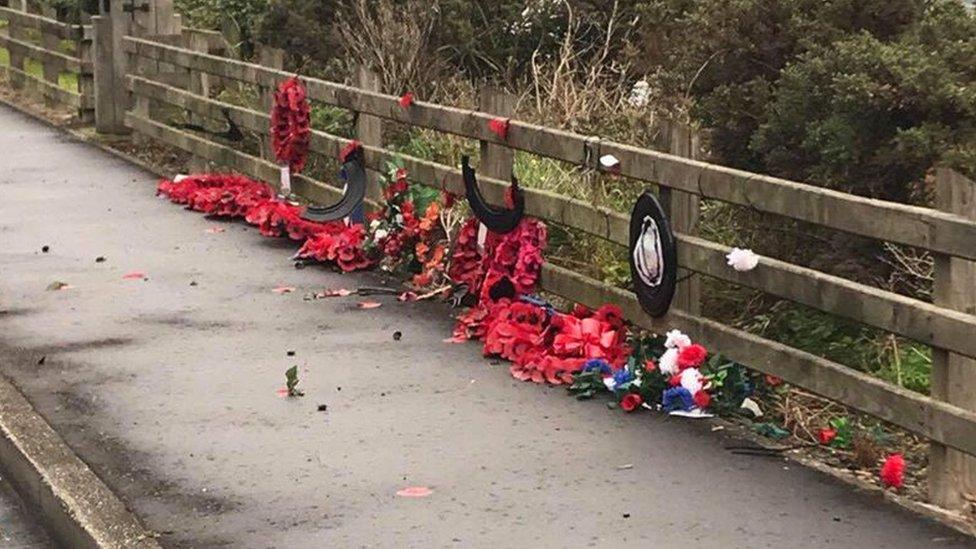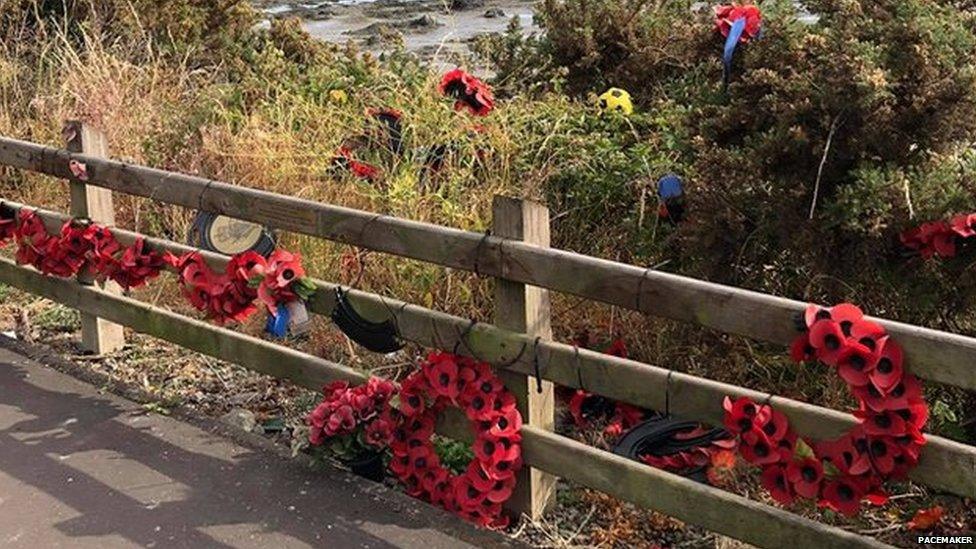Narrow Water wreaths attacked for the second time in weeks
- Published

Poppy wreaths at Narrow Water in County Down have been damaged for the second time in three weeks.
They commemorate 18 soldiers were killed in two IRA bomb attacks at the site , externalnear Warrenpoint in August 1979.
Wreaths at the memorial were damaged previously in November 2017, June 2018 and in September 2018.

The PSNI said poppy crosses, wreaths and floral tributes were destroyed and it is investigating the attack as a hate crime.
"All reasonable people will condemn this act of absolute disrespect & depravity," said DUP Councillor Glyn Hanna.
"This memorial marks the place where 18 human beings were murdered.
"Those soldiers have families who still grieve. Really sad," he added.
UUP Councillor David Taylor said the vandalism was "sickening" which "has become an all too regular occurrence at this location".
Allow X content?
This article contains content provided by X. We ask for your permission before anything is loaded, as they may be using cookies and other technologies. You may want to read X’s cookie policy, external and privacy policy, external before accepting. To view this content choose ‘accept and continue’.
The Sinn Féin MP for South Down Chris Hazzard described those who vandalised the Narrow Water Massacre memorial overnight as "morons" and appealed for the wreaths to be left alone.
Allow X content?
This article contains content provided by X. We ask for your permission before anything is loaded, as they may be using cookies and other technologies. You may want to read X’s cookie policy, external and privacy policy, external before accepting. To view this content choose ‘accept and continue’.
The 1979 attacks at Narrow Water were carried out hours after the Queen's cousin, Lord Louis Mountbatten, was killed in an IRA bomb attack on his boat in County Sligo in the Republic of Ireland.
Legacy
Disagreements on how to deal with the legacy of the Troubles continue to be one of the stumbling blocks preventing the return of power-sharing in Northern Ireland.
Sinn Féin launched its proposals on dealing with the past, external on Wednesday.
That document described the British Government as the "main conflict protagonist" during the Troubles drawing criticism from unionists.
DUP Leader Arlene Foster said republicans were responsible for 60% of deaths during the Troubles, saying Sinn Féin was trying to "rewrite history".
"We all should be focused on the future, but it will not heal the wounds of any victim in Northern Ireland nor will it help us move forward if republicans cannot even accept the role they played but wish to shift the blame for all their actions onto the government of the United Kingdom," she said.
DUP MP Jeffrey Donaldson told BBC Radio Ulster's Talkback show that the facts were "indisputable" and any such re-writing of history was "insulting to innocent victims".
"Any rational assessment of the Troubles can only result in one conclusion - that the main protagonist was actually the republican movement - Sinn Féin and the IRA," he said.
The republican movement was trying to paint itself as the "good guy" but that was not "going to wash", he added.
"My cousin was the first RUC officer to be murdered by the Provisional IRA in the Troubles and I have yet to hear an explanation as to why it was felt right to murder innocent police officers in those circumstances," he said.
"No-one will convince me of a version of history that will justify the taking of life on any side."
- Published16 September 2018

- Published9 July 2018
